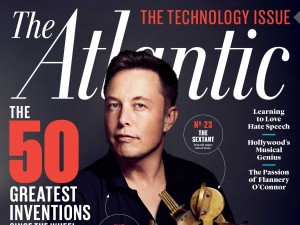In a today’s society it is inevitable for people to blame their procrastination on their ADHD. The Centers for Disease Control and Prevention projected that 9.5% of children that age between 3-17 have been diagnosed with attention deficit hyperactivity disorder (ADHD). While the symptoms of ADHD are not life-threatening they do play a huge role in a student’s academic and social behavior. Since there is not a medical test that can accurately tell someone if they have ADHD and the causes are still being investigated, it is becoming more and more common. It’s human nature to not be ok with failure so most people try to find an excuse and recently within the last decade that excuse has been ADHD.
Parents are strongly with how to solve the issue of ADHD. For some parents they struggle with realizing that their child has a learning impediment and needs extra help, they aren’t just blowing school work off because it is not important to them. Coming from a family where the majority has ADHD my mom initially struggled with accepting it. She couldn’t help herself but yell at my brothers for forgetting to hand in his homework, taking three hours to do a homework assignment that was intended to be only thirty minutes, and my always being late for school. When his teachers suggested he had it my mom didn’t know what to do with it. Luckily now a days parents have grown to be more accustomed to it but they still struggle with how to approach the issue. Should they rely on medication, look for a change in diet, trying alternative remedies? Fully understanding ADHD is still a mystery so the answer is still far away. The best way to handle it is experimentation.
The report, from prescription provider Express Scripts, finds a large overall increase in the number of Americans treated for attention deficit hyperactivity disorder: a 36 percent rise in just five years. Even though the numbers keep increasing, with ADHD medications tending to be so addictive and parents not wanting to be the reason for an addiction or drug dependent child there is still resistance. So what should a parent do?
Last year an experiment was conducted by, Lancet, that studied the correlation between a diet and the effects on ADHD. There was 100 subjects with ADHD, 50 were placed on a strict diet (rice, meat, fruits, veggies and water) while the other 50 (control group) were on a normal diet. After five week the researchers compared symptoms and found that 64% of children on the restricted diet found significant improvements in ADHD symptoms while the control group had no change. Although this is only one example, since the 1980s there have been four other studies that have been published that showed very similar results.
In this experiment the sample size is relatively small, the subjects were “recruited” it was not necessarily a random experiment, third variables were not measured, the symptoms measured were not provided. On the other hand reverse causation can be ruled out. It was an experiment not an observational study. If I were a parent with a child with ADHD and was evaluating the experiment I would certainly be cautious but there aren’t many alternatives. There is no harm in testing out a change in diet and personally observing the effects it plays on your child. Sometimes it is hard to wrap your head around the idea that you don’t have to be allergic to a food item or group (in this case gluten) to have a sensitivity to it.
If you are struggling with ADHD with unsupportive or un-knowledgable parents I suggest reading this article http://www.additudemag.com/adhd/article/9807.html and seeing if a change in your diet affects your school work at all!


















